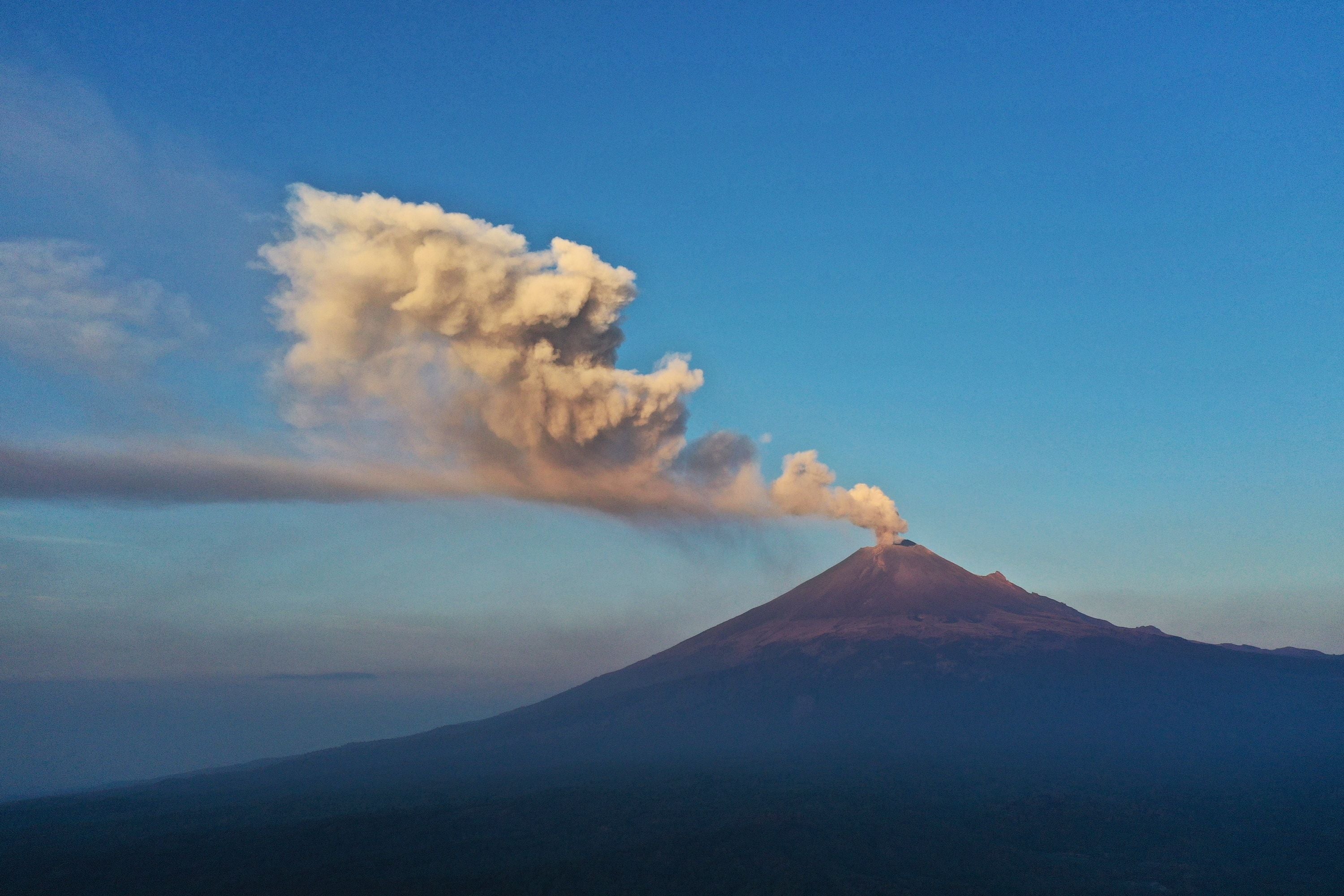
The Benito Juarez International Airport in Mexico City resumed operations on Saturday after flights were suspended due to volcanic ash.
The ash was the result of activity in the nearby Popocatepetl volcano, according to Reuters.
"After removing the volcanic ash, checking the runways and verifying favorable wind conditions, we resumed takeoff and landing operations starting at 10.00am," the airport reported on Twitter. "Check with your airline the status of your flight."
Operations at the airport ceased around 4.25am, leaving flights suspended for more than five hours. Some flights were delayed while others were canceled.
The volcano is approximately 45 miles (72km) from Mexico City. It has been active since 1994, and is regularly monitored by scientists due to its proximity to the 22 million residents in Mexico City and the surrounding region.
Airport officials were not the only ones closing up shop due to the volcanic activity - 11 villages in the region were forced to cancel school due to the falling ash, according to the Associated Press.
The volcano — known as "El Popo" locally — became active in 1994 after a long period of dormancy. Since then, it has occasionally launched toxic fumes and rock into the air during periods of activity.
The monitor team uses a network of sensors and cameras to keep watch over Popocatepetl. That system includes 12 seismological monitoring stations, six cameras operating 24 hours a day, and a command centre in Mexico City staffed by 13 scientists who work on shifts.
The command centre is run by the nation's National Disaster Prevention Centre — CENAPRED — and is the first line of defense for the city. Unlike earthquakes, which strike without warning, the monitoring team can use readings from the volcano to predict when there might be trouble — like flight-disrupting ash clouds — and issue warnings to city officials.

The city uses a "stoplight" method to alert residents to the threat level posed by the volcano on a given day. Green means safety, yellow is a warning of potential activity, and red means the volcano poses a danger.
The stoplight has typically been in a "yellow" state since it was introduced.
CENAPRED and the National Autonomous University of Mexico issued a statement on Wednesday saying they were anticipating increased activity at the volcano, noting the activity was not necessarily indicative of anything especially worrisome.
“The explosions taking place inside Popocatépetl… are a normal phenomenon and not necessarily indicative of increased volcanic activity,” the institutions said in a joint statement, according to Mexico Daily News.







